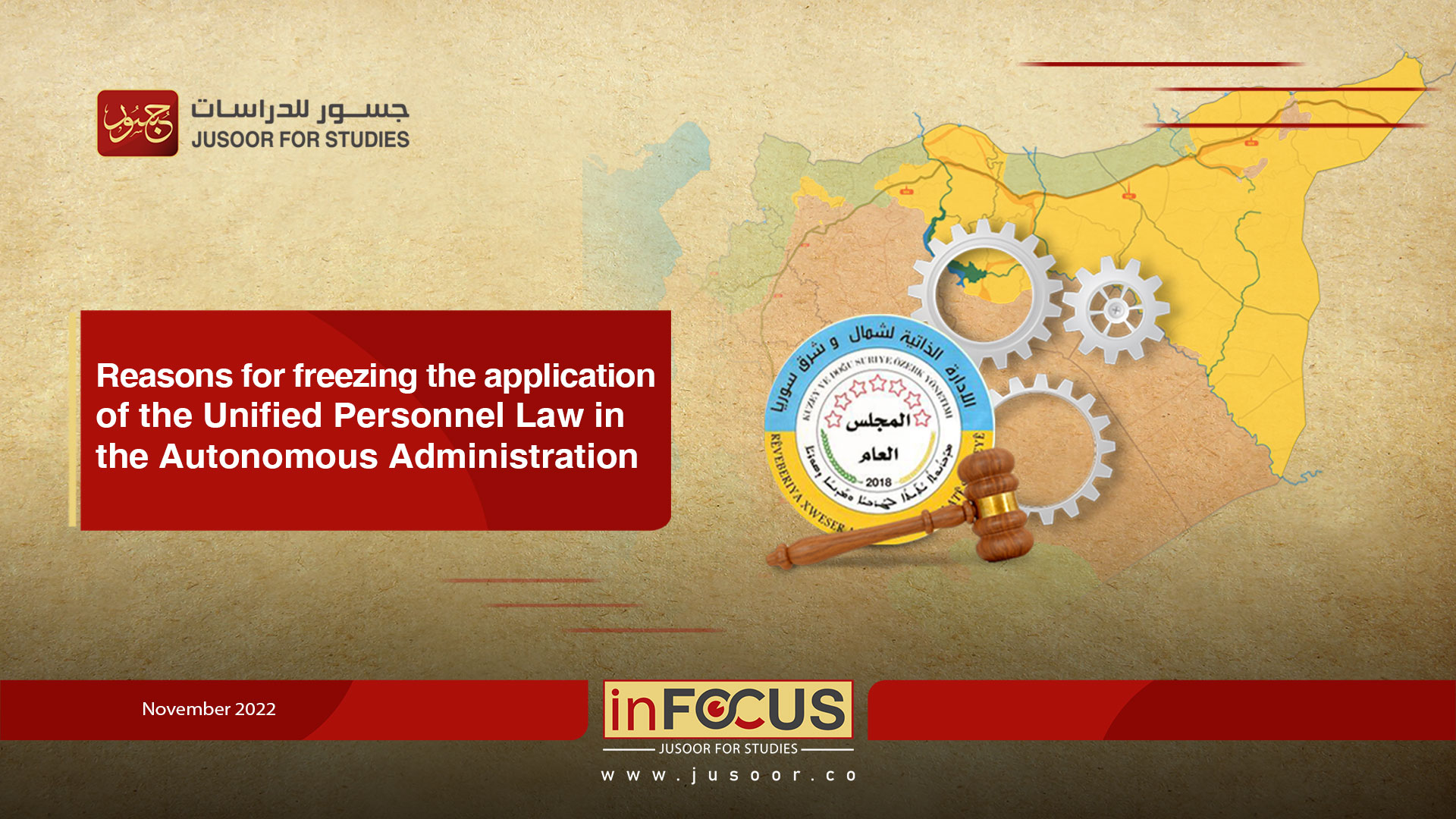Reasons for freezing the application of the Unified Personnel Law in the Autonomous Administration
On February 2, 2020, the Autonomous Administration in Syria approved the Unified Workers Law, that should enter into force in June of the same year. Yet, this has not happened, due to the disruption and postponement of the law-enforcement several times by PKK cadres.
Applying this law has not only become a constant demand but also an obsession for a large segment of the population of the areas controlled by the Syrian Democratic Forces, including the employees of the Autonomous Administration, which number more than 120,000. This is also demanded by many young people looking for work within the institutions of this administration, amid the absence of job opportunities in private and self-employment ventures in the sectors of agriculture, industry and commerce.
In view of the content of the law’s articles - numbering 138 - and the requirements, tools and expected effects of its application, a number of motives and factors could be put into practice that may be the reason for the delay in implementing the law by the Autonomous Administration and its own backbone, the Kurdistan Workers Party (PKK):
• The application of this law necessarily requires the allocation of a financial mass greater than the budget of the Autonomous Administration for its employees; because it recognizes and regulates the financial and administrative rights of employees, whether that are related to determining wage categories according to the position and educational attainment, compensation for overtime, nature of work, sick or maternity leaves, termination compensation or others, especially since such expenses are currently regulated to a minimum and left to the personal judgment of the directors of departments and institutions .
• Applying the law's articles, which define the standards and requirements for employment within the Autonomous Administration institutions, threatens the networks of employees and officials affiliated with the PKK, through which the party indirectly manages these institutions; especially since most of the members of these networks do not often have educational certificates that qualify them for having high positions they currently occupy. This is because they were appointed by the party's acclamation on the basis of loyalty rather than competence. The deputies of the joint presidency of the Executive Council of the Autonomous Administration can be considered one of the most important networks for the party; because most of them are Syrian cadres and virtually control all sectors of the Autonomous Administration's work.
• The application of the law and its defining mechanisms and conditions for appointing employees within the Autonomous Administration’s institutions without discrimination on the basis of gender, ethnicity, religious belief or political orientation will lead to the sabotage of the ethnic and racial balance that the PKK seeks to establish within all Autonomous Administration’s institutions in several ways. Some of these ways are direct ones as appointing employees on the basis of acclamation based on nationalism and loyalty to the party regardless the competence. There are also indirect ways, such as the adoption of the joint presidency system in the management of all these institutions and the selection of one of the two presidents always from the party’s loyalists, who should be Kurdish, regardless of any requirements or conditions of appointment.
• The application of the law may lead to impeding or undermining the ideological activities carried out by the PKK in favor of its mentality within the institutions of the Autonomous Administration, especially the Education Authority, which obliges all teachers and administrators affiliated with it to undergo building-ideology courses for a period of one month each year during which they receive theoretical and ideological lessons that explain and promote for the ideas of the PKK and its leader Abdullah Ocalan.
The points - mentioned above - may not cover all the fears and motives of the Autonomous Administration and the PKK to disrupt and freeze the implementation of the Unified Workers Law for more than two and a half years in a row. However, such motives can give a relative justification for this freeze in the current period at least, during which the party seeks to strengthen its popular bases within the local community and existing governance institutions.
In any case, there are currently no indications of a plan or intention by the PKK and the Autonomous Administration to implement the Unified Workers Law, especially with the continued absence of an organized, directed and simultaneous popular movement in all areas of SDF control to demand the enforcement and implementation of this law as a result of the absence of the effective role of civil society organizations, trade unions and political parties operating and licensed by the Autonomous Administration.
